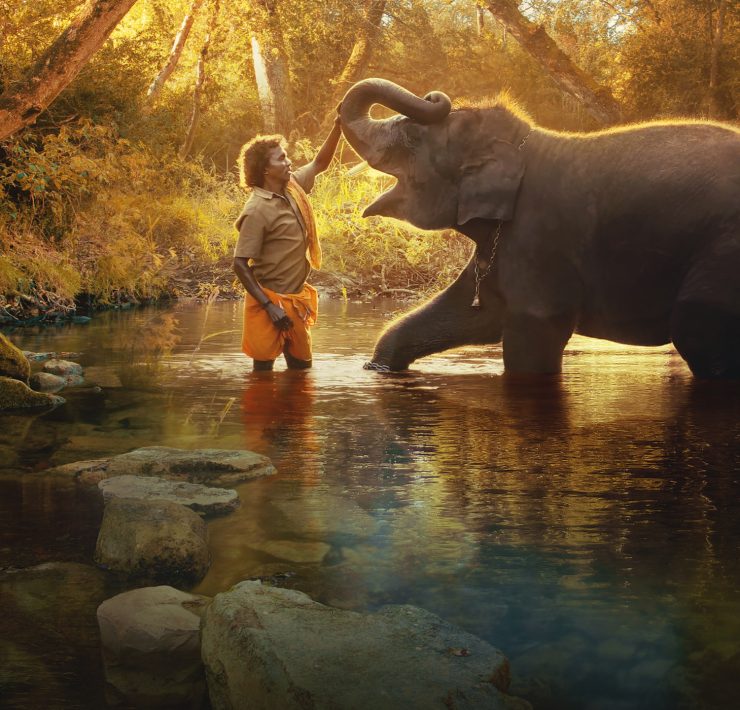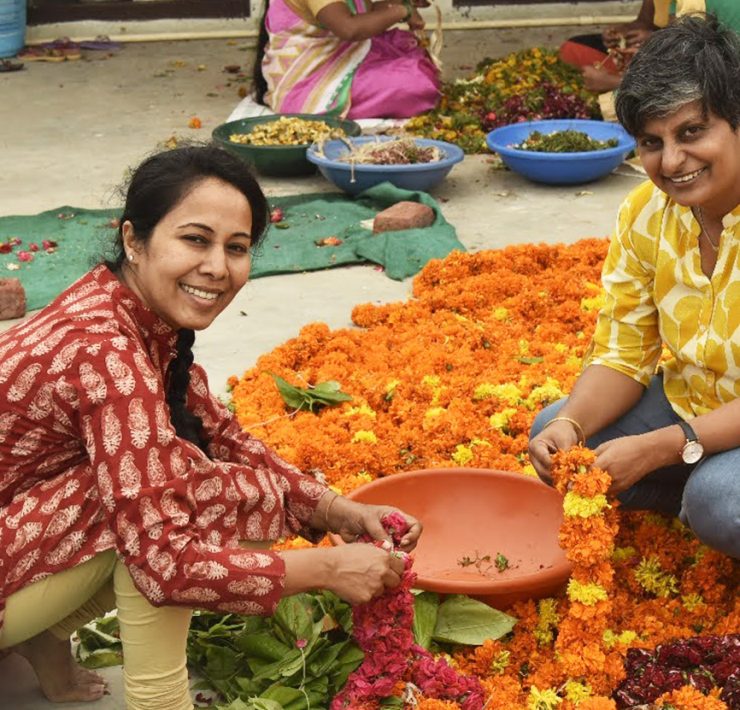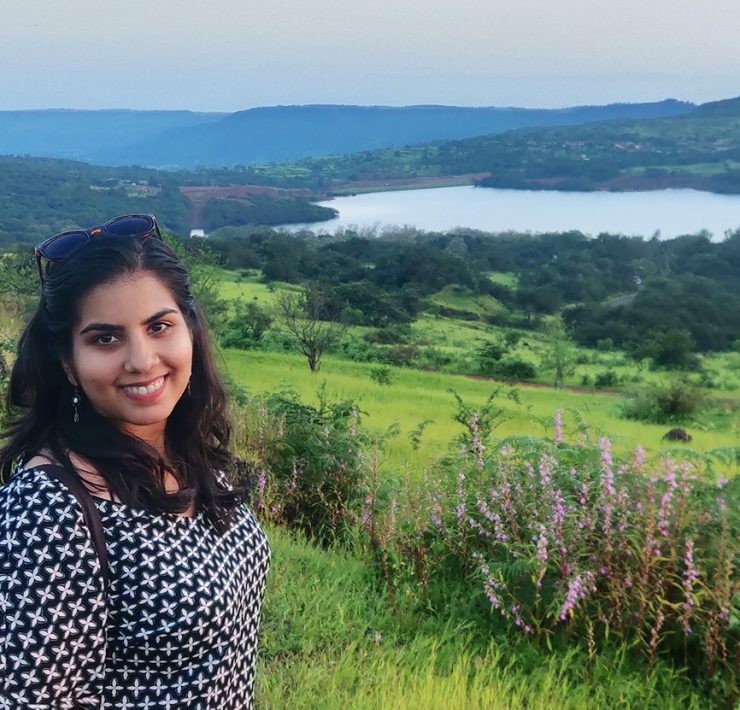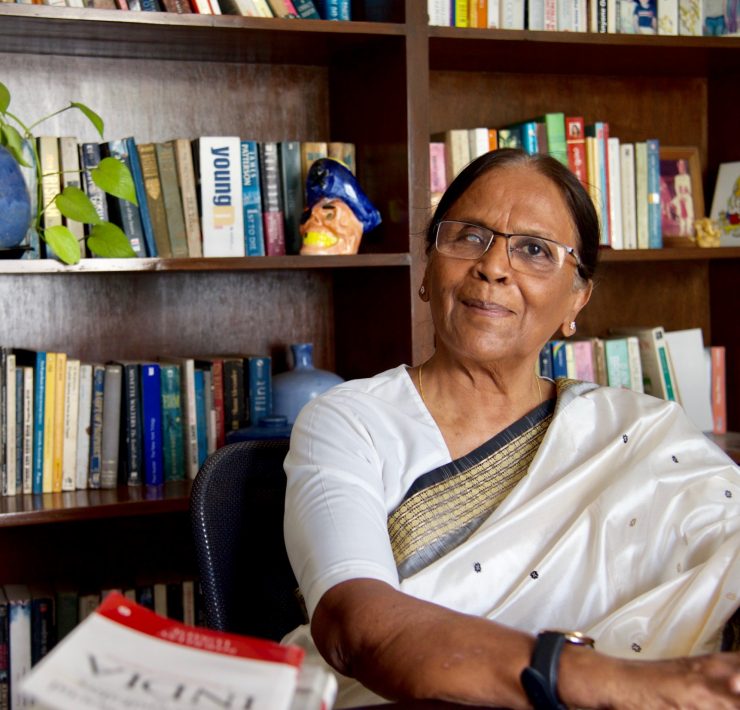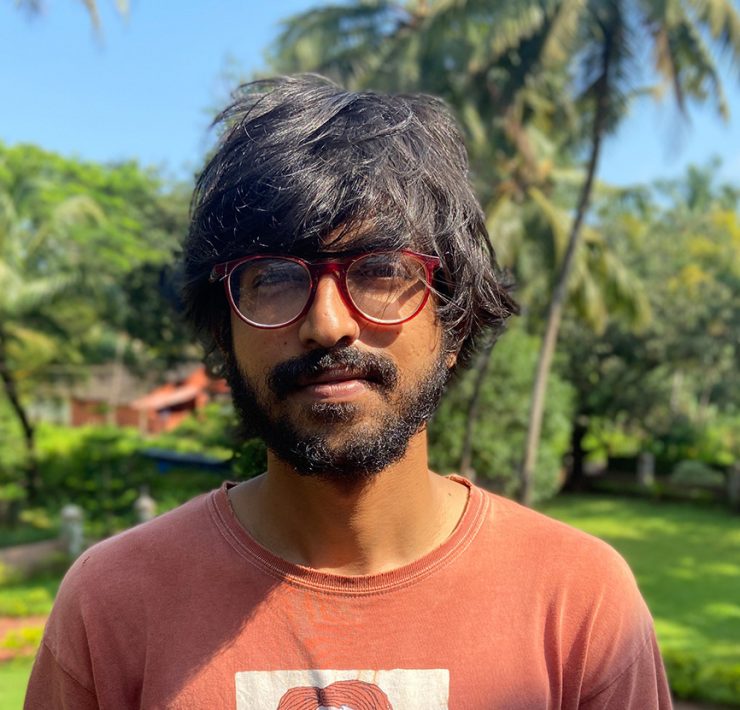No child’s play!
- 12-year-old climate activist Ridhima Pandey talks about her journey, signing a petition at the UN alongside Greta Thunberg, and climate activism in times of Coronavirus.

Bhoomi Mistry is a part-time content writer and an avid…
As we grapple with the devastating effects of Coronavirus, a young girl faithfully continues to urge people to change their habits in order to avoid another looming problem – climate change. “We all know that some of the most polluted rivers started getting cleaner and the air quality also improved. But these only came about because the root cause of destruction, humans, were locked up in their homes. This immediate change tells us that humans are largely responsible for endangering our planet. We have to change our mindsets and our lifestyles,” she says.
Hailing from Uttarakhand, Ridhima Pandey is a 12-year-old environment activist. This Gen Z warrior was sensitised to the effects of climate change at the age of 5, when the devastating floods of 2013 wreaked havoc in Kedarnath, the famous pilgrimage spot in her home state. Cut to 2019, Pandey stands alongside Greta Thunberg and fourteen other children to file a landmark complaint against the lack of government action on climate crisis with the United Nations.
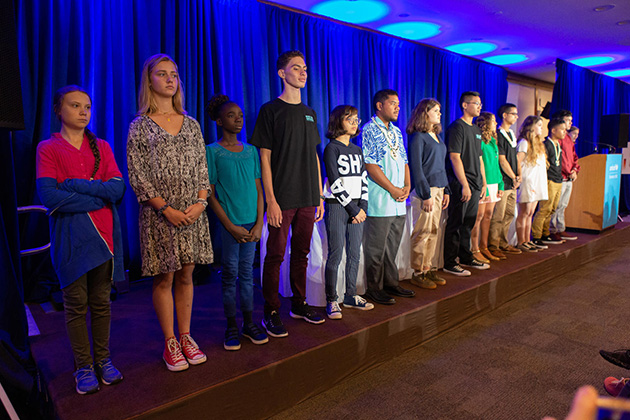
The beginning
After an early epiphany, Ridhima started her journey as a climate activist at the age of 9. “I learned that lack of government action on climate crisis is a violation of children’s rights. It puts our future at stake and nobody is doing enough about it,” she says, referring to the disaster relief provided by the Indian government for Kedarnath floods.
The perils of climate change have become more apparent than ever. And in spite of all the scientific evidence, most big players and governments have not considered the impact that their activities will have on the environment. Frustrated by the apathy, Ridhima decided to take matters into her own hands. “That is when I realised that it is my responsibility to protect my planet, my future, and that of the coming generations. I couldn’t just sit at home and believe that somebody else will do something to secure our future. With the help of my parents, I filed a petition against the Government of India at the National Green Tribunal for not taking climate crisis seriously.”
Although filing a complaint with the National Green Tribunal in 2017 did not yield positive results, it motivated her to continue her crusade. “They dismissed my petition on the grounds that the government is doing enough and they do not require further directions. Now we have taken this matter to the Supreme Court and are awaiting a response,” she tells us.
“I learned that lack of government action on climate crisis is a violation of children’s rights.”
The defining moment
Having gained an initial insight into the workings of the government, Ridhima says, “The problem with the government in India is that they do more work on paper and less on ground. Studies and reports predict that India is at a higher risk of getting affected by climate change because as a developing country, the government here does not care about the resources they exploit and the real cost of what they call ‘development’. The forest clearance of the Dibang Valley, the coal mining approved by NBWL in Assam – all of it will have an adverse effect on the coming generations.”
Climate crises is a problem that needs to be tackled at personal and community level. Ridhima thinks that while we continue to do our bit, the solution depends heavily on the adoption of scientific approach by national and international bodies.
In a defining moment of leading by example, Ridhima Pandey filed a complaint with the United Nations Committee on the Rights of the Child, alongside Greta Thunberg and fourteen other children to convince global leaders to adhere to environmental protocol. “When I filed the petition with the NGT, the response was not good. But things were different at the United Nations. They accepted our petition and asked the countries mentioned in the complaint to submit their responses. All the five countries have done so,” she says, referring to Brazil, Argentina, France, Germany and Turkey – countries with some of the highest carbon emissions in the world. Ridhima’s efforts have been widely recognised and she is often dubbed as the Greta Thunberg of India. “I am really grateful that people consider my work important and call me India’s Greta. But we both have very different personalities and I would love for people to refer to me as Ridhima Pandey instead of Greta of India,” she reacts.
“I would love for people to refer to me as Ridhima Pandey instead of Greta of India”
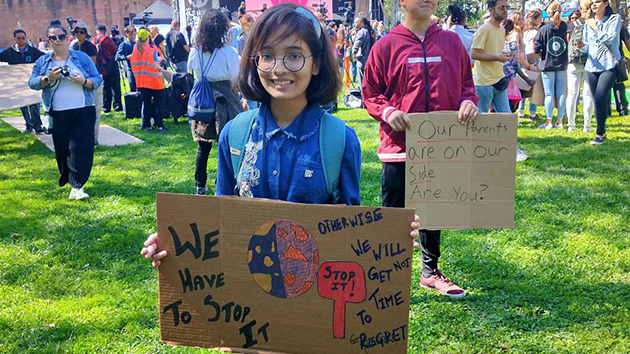
Digital activism
On her mission to save the planet at the UN, Ridhima bonded with several other like-minded comrades from all over the world. “It was one of the greatest experiences of my life. At the summit, I learned so much about the problems faced by countries due to global warming, the difficulties faced by climate activists around the world and how the government responds to their protests. I also made new friends, who I am still in touch with through social media.”
These friends of the planet are not discouraged from making a difference in difficult times. They understand that inaction could lead to a far worse outcome. “We have started experiencing the effects of climate change and if we don’t take action now, then we will face problems like extreme weather, droughts, floods and change in precipitation pattern. The sea levels will rise by 1-4 feet by 2100 and the Arctic will become ice free,” she explains. “Coronavirus has changed the face of climate activism. Now, we cannot go out to host events and strikes, etc. so we have started hosting them online. A global climate strike was proposed as of 24th April 2020, but we couldn’t bring it to the streets so we hosted it digitally for 24 hours and got huge support. In order to boost people’s morale, I joined a webinar to shoot a video to remind them that where there is a will, there is a way.”
“We have started experiencing the effects of climate change and if we don’t take action now, then we will face problems like extreme weather, droughts, floods and change in precipitation pattern.”
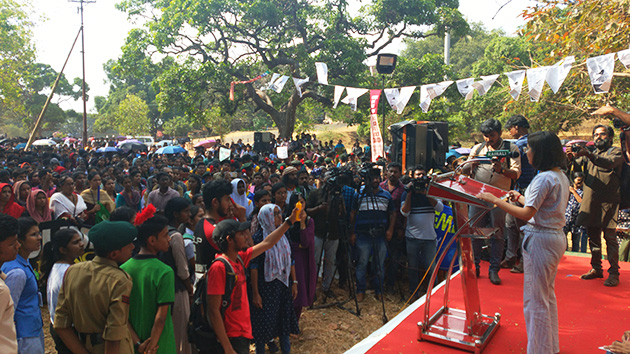
The way forward
In recent times, we have experienced how easy it is for nature to bring the whole of humanity to its knees. Now more than ever, we need to rethink our consumption habits and make sustainability a part of mainstream conversations. “Sustainable living is the need of the hour. If we want to save our future, we must encourage sustainable development. It only works when it becomes a part of our education,” she says. “A person can become more sustainable by saving electricity, water, paper and follow the three R’s (reduce, reuse, recycle). One can use a metal water bottle and use a bicycle to travel short distances. Extra clothes can be donated.”
And of course, evaluate our eating habits. “Livestock farming has a huge environmental footprint. It contributes to land and water degradation, biodiversity loss, acid rain, coral relief degeneration and deforestation. It contributes to 18% of human produced greenhouse gas emissions worldwide. I am a vegetarian by choice, but I think that not only environmentalists, but everybody should give vegetarianism a try.”
“Sustainable living is the need of the hour. If we want to save our future, we must encourage sustainable development.”
How does a 12-year-old girl embark on this incredibly inspiring journey? Ridhima thinks that it’s never too early or late to start. “Personally, I believe that age is just a number and if you see, most people say that but do not really acknowledge it themselves. A person should not be judged on the basis of their age, caste, religion and sex, but on the basis of their work and personality.”
Bhoomi Mistry is a part-time content writer and an avid art enthusiast based in Mumbai. When she’s not chasing deadlines, you’ll find her sitting in her backyard, sketching to the tunes of Frank Ocean.

